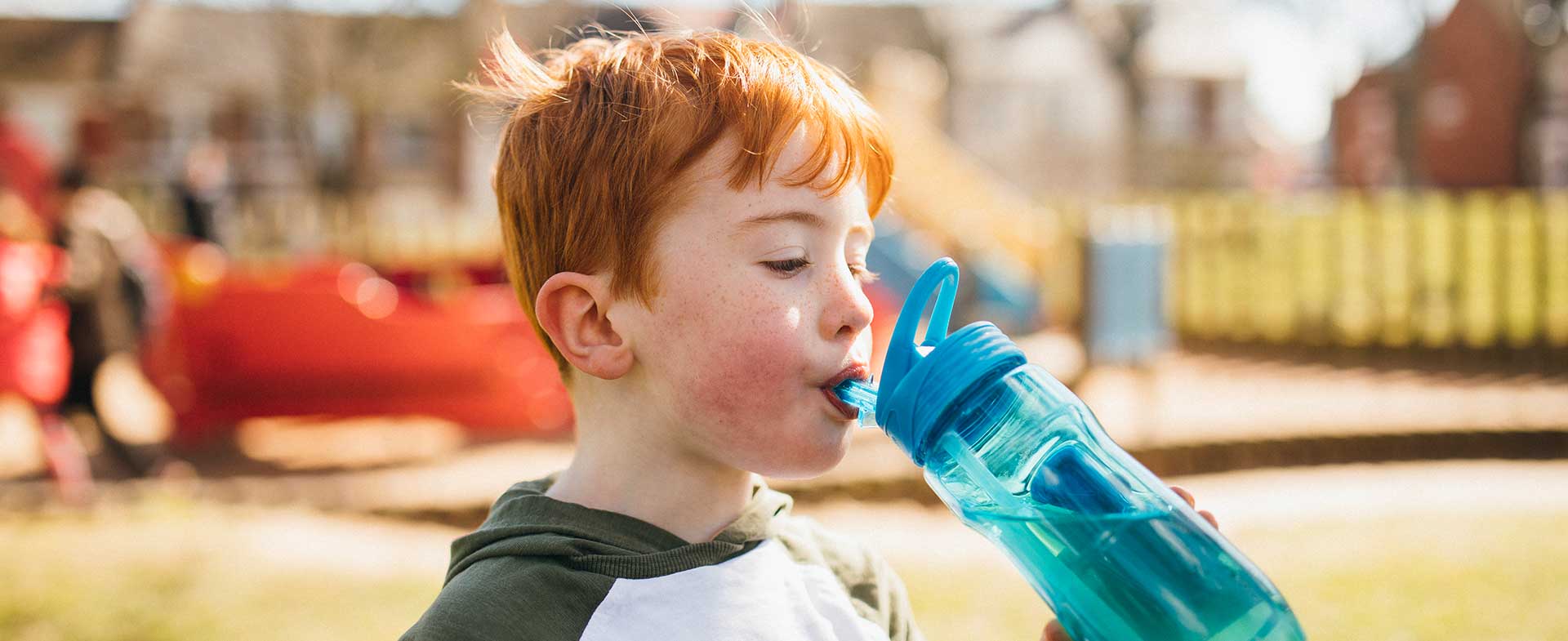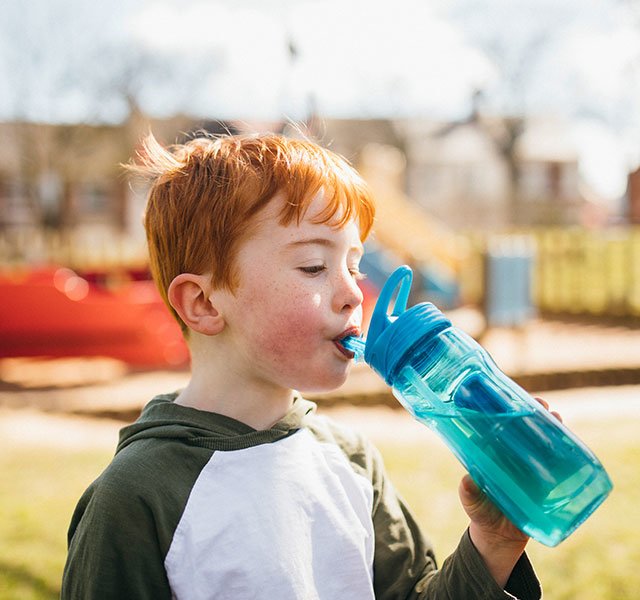When it comes to summertime sweating, kids are a vulnerable population. They get dehydrated quickly, with consequences ranging from fatigue and irritability to heat exhaustion and stroke. Rehydrating with water is an obvious solution, but most kids need to be reminded to drink water, particularly when they're having fun in the sun.
What Does Dehydration Look Like In Children?
Kids’ bodies are 60% to 70% water. Dehydration happens when they lose too much of that water, whether through sweat or due to a viral illness that causes fever, vomiting and diarrhea.
If your child is mildly dehydrated, they may not show any signs. But if they don’t rehydrate, you may notice the following symptoms:
- Darker than usual urine
- Less urine
- Crying without tears
- Increased fatigue
- Dry mouth
- Sleeping more than usual
- Feelings of dizziness or lightheadedness
Unfortunately, kids may not be able to tell you that they're thirsty or feeling unwell (and waiting to feel thirsty is often too late). That means dehydration can progress without clear warning signs. To make matters more complex, children are at increased risk of dehydration because they lose a higher percentage of water through the skin surface when they sweat compared to adults.
How To Protect Your Child From Dehydration
Encouraging children to drink water at regular intervals throughout the day can be a challenge. These six strategies can help ensure your child stays hydrated:
- Mandate water breaks. Kids are often so busy playing in the sand and participating in sports that they forget to rehydrate. Make sure kids drink a full glass of water before play or physical activity begins. Then require them to take water breaks at 30-minute intervals.
- Bring water-rich snacks. Hydrating foods like 100% juice popsicles, watermelon, grapes and orange slices are great stand-ins for water in a pinch. Plus, your child is more likely to press pause on his play if he gets to nosh on a ripe, red watermelon wedge.
- Make it fun. Kids may object to water because it's "boring." You can dress up fluids by serving water in a fun glass with silly straws. Add herbs and berries for extra flair. Better yet, freeze juice into ice cubes to make plain water a bit sweeter.
- Limit caffeine. Kids and caffeine aren't a good mix. The combination is even worse when it comes to staying hydrated. Caffeine increases the amount kids have to pee, which means it also contributes to dehydration (never mind the toll it takes on your child's ability to sit still).
- Go beyond water. If your child is exercising or playing in the sun for more than 90 minutes at a stretch, make sure you include electrolytes in your rehydration plan. The reason: When kids get overheated and dehydrated, they’re not just losing water. They’re sweating out electrolytes like sodium, potassium and chloride. Electrolyte solutions like Capri Sun sports juice boxes, Smart Water and Gatorade are all solid options.
- Watch the toilet. Educate your children about the importance of drinking water and teach them to check the toilet for feedback on how they're doing. Most kids love analyzing what comes out in the toilet. Explain that their pee should be the color of lemonade (clear or light yellow), not dark yellow or burnt orange.
Hydration Basics
Preventing dehydration begins with establishing a habit of drinking water throughout the day. It's easier — and healthier — to stay hydrated than to play catch up when you're losing fluids. It's also important to pay attention to the signs of dehydration — and educate children (in an age-appropriate way) to take notice of the warning signs.
In addition to paying attention to what comes out in the toilet, kids should know that dry mouth, cracked lips, and no tears or sweat are signs of trouble. They should also understand that dehydration can lead to feeling dizzy or off-balance. Parents should pay attention to changes in energy level, behavior and for babies, a sunken fontanel (soft spot on the head).
Dehydration in kids progresses quickly. If you suspect your child may be insufficiently hydrated, it's important to begin the rehydration process and get help if your child is struggling to keep fluids down.
Subscribe to receive weekly emails of our latest tips.
To find a doctor or pediatrician at Henry Ford, visit henryford.com or call 1-800-436-7936.
Stacy Leatherwood Cannon, M.D., is a board-certified pediatrician and the physician champion for childhood wellness for Henry Ford LiveWell. She sees patients at Henry Ford Medical Centers in midtown Detroit and Sterling Heights. Learn more about Dr. Leatherwood Cannon.



